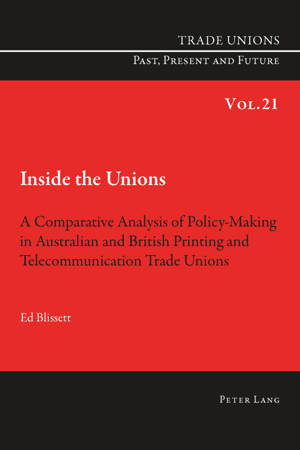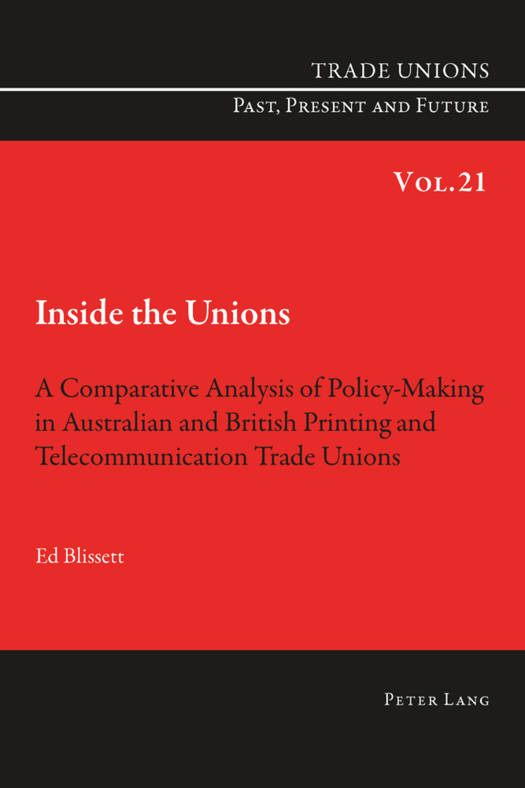
- Afhalen na 1 uur in een winkel met voorraad
- Gratis thuislevering in België vanaf € 30
- Ruim aanbod met 7 miljoen producten
- Afhalen na 1 uur in een winkel met voorraad
- Gratis thuislevering in België vanaf € 30
- Ruim aanbod met 7 miljoen producten
Zoeken
Inside the Unions; A Comparative Analysis of Policy-Making in Australian and British Printing and Telecommunication Trade Unions
A Comparative Analysis of Policy-Making in Australian and British Printing and Telecommunication Trade Unions
Ed Blissett
€ 91,95
+ 183 punten
Omschrijving
This book consists of a comparative analysis of policy-making in Australian and British telecommunications and printing trade unions. It tests the validity of different theoretical models of union policy-making and behaviour, whilst also assessing the strength of the book's hypothesis, that informal micro-political influences inside unions - such as personal friendships, enmities and loyalties - affect union policy-making to a greater extent than has been previously acknowledged in the literature.
Two central questions lie at the heart of this book: How, and why, do unions adopt specific policies? What factors explain the different behaviour of similar unions, when faced with comparable policy choices?
As a former senior union officer the author realised that trade unions are often wary of publically disclosing those factors which informed their policy choices. For this reason an interview-rich methodology was adopted, which involved a seventeen-year longitudinal study, in which over 220 officers and staff of all the relevant unions, were interviewed in depth. The result is a book which throws new light on the rich and complex process of union policy-making.
Two central questions lie at the heart of this book: How, and why, do unions adopt specific policies? What factors explain the different behaviour of similar unions, when faced with comparable policy choices?
As a former senior union officer the author realised that trade unions are often wary of publically disclosing those factors which informed their policy choices. For this reason an interview-rich methodology was adopted, which involved a seventeen-year longitudinal study, in which over 220 officers and staff of all the relevant unions, were interviewed in depth. The result is a book which throws new light on the rich and complex process of union policy-making.
Specificaties
Betrokkenen
- Auteur(s):
- Uitgeverij:
Inhoud
- Aantal bladzijden:
- 364
- Taal:
- Engels
- Reeks:
- Reeksnummer:
- nr. 21
Eigenschappen
- Productcode (EAN):
- 9783034317313
- Verschijningsdatum:
- 6/11/2013
- Uitvoering:
- Paperback
- Formaat:
- Trade paperback (VS)
- Afmetingen:
- 150 mm x 224 mm
- Gewicht:
- 498 g

Alleen bij Standaard Boekhandel
+ 183 punten op je klantenkaart van Standaard Boekhandel
Beoordelingen
We publiceren alleen reviews die voldoen aan de voorwaarden voor reviews. Bekijk onze voorwaarden voor reviews.











